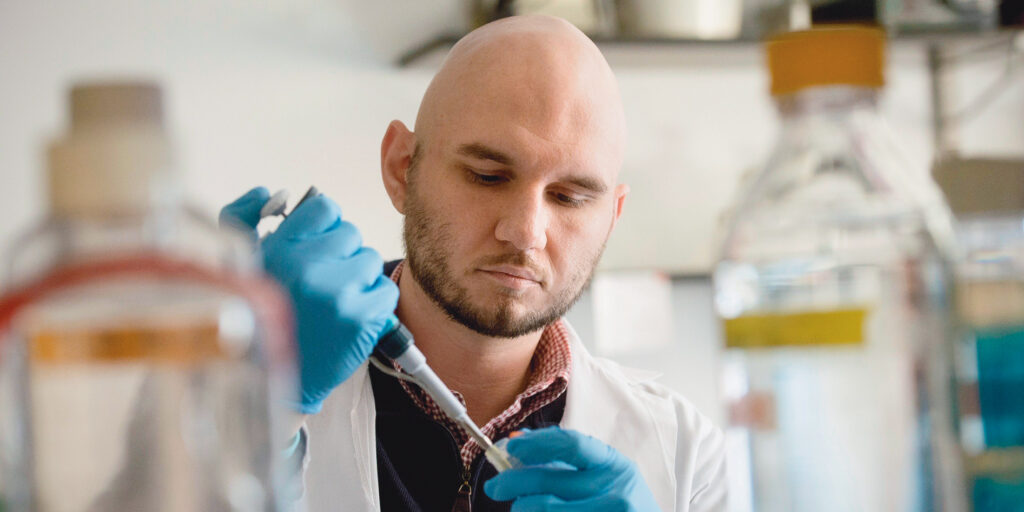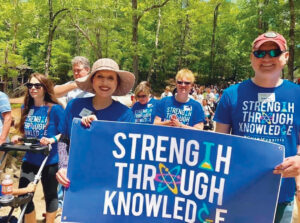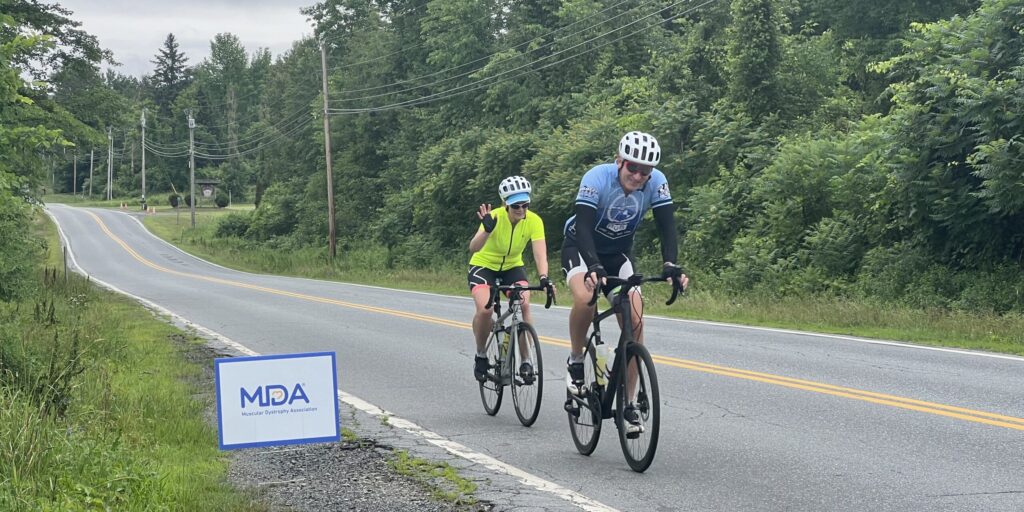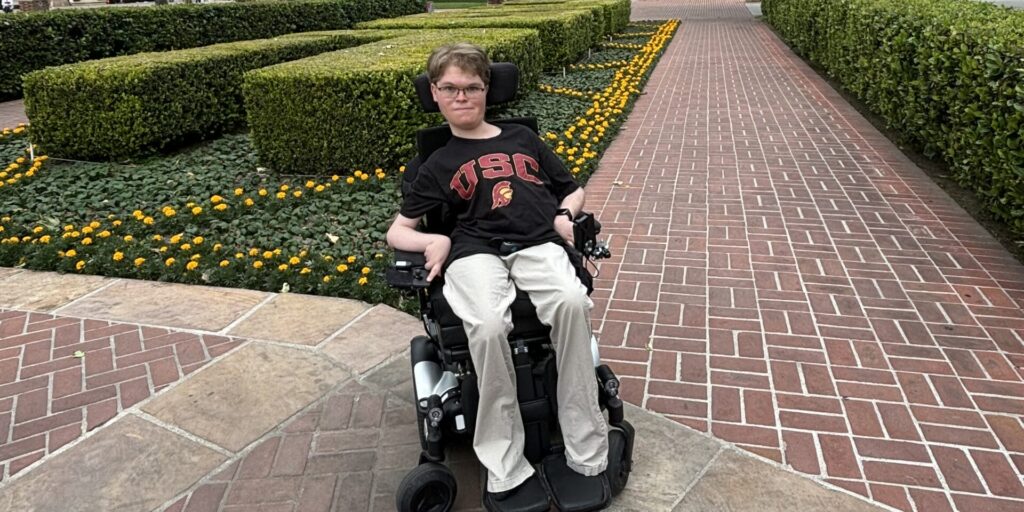
Neuromuscular Disease Researcher Doesn’t Let Dermatomyositis Stop Him
By Rebecca Hume | Monday, February 12, 2024
Neuroscientist Stephen Moore, PhD, has always been fascinated by the brain and body. He built his career around studying neurological and neuromuscular diseases. When he was diagnosed with a rare neuromuscular disease himself, his professional pursuit became a personal passion.
Growing up, Dr. Moore’s parents taught him to strive to do his best and fostered his desire to make a positive impact on the world. He studied psychology at the University of Alabama (UA) Honors College in Tuscaloosa, where he took an upper-level pathophysiology course about the brain’s role in certain disorders, including neuromuscular diseases. Intrigued by the subject, Dr. Moore found his calling in neuroscience, and upon graduating in 2010, he enrolled in a doctoral program.
While taking classes in Tuscaloosa, he accepted a lab position with a research team at the University of Alabama at Birmingham (UAB) Heersink School of Medicine, about 60 miles away. It was during this busy time that Dr. Moore developed a painful rash on his upper body and began experiencing fatigue, muscle pain, and weakness. In 2012, Dr. Moore was diagnosed with dermatomyositis and took a medical leave of absence for one semester to manage his symptoms.
Resources and research
Dermatomyositis is an inflammatory disease that affects muscles and skin and is often treated with intravenous immunoglobin (IVIG) treatment, an infusion of antibodies meant to help the immune system work better. After beginning IVIG and learning to navigate his diagnosis, Dr. Moore returned to research with an increased drive to focus on neuromuscular and autoimmune diseases.
Dermatomyositis can cause progressive muscle loss, debilitating fatigue, and a rash on the hands and body. Wearing gloves while doing lab work made the rash on Dr. Moore’s hands worse.
Dr. Moore met with the Office for Disability Services to ask for accommodations. They gave him additional time to take hand-written tests, allowing him to give his hands a break from cramping and pain. Research requires standing for long periods of time, which proved challenging with Dr. Moore’s muscle fatigue. The lab provided a chair for Dr. Moore to use for breaks and access to the surgical suites after hours so that he could complete his research at his own pace.
“There are systems set up to help accommodate your needs,” Dr. Moore says. “There are always going to be some barriers, but the biggest thing I’ve learned is to communicate my needs and ask for help.”
Dr. Moore transferred to the doctoral program at UAB, where he could work and study on the same campus. In addition, UAB offers a program to retain and provide extra training to underrepresented people in the neurosciences. Living with a disability qualified Dr. Moore to join the program, which gave him more educational support and access to career coaches.
Upon finishing his doctoral program, UAB hired Dr. Moore as a full-time researcher. He is currently completing research on amyotrophic lateral sclerosis (ALS) in an MDA grant-funded lab and conducting research on inflammatory myopathies, a class of diseases that includes dermatomyositis, polymyositis, and inclusion-body myositis (IBM).
“My position is an example of using the resources and connections that I have made along the way,” Dr. Moore says. “There is so much power in the connections we make.”
The power of connection and community

Dr. Moore (right) started an MDA Muscle Walk team.
For Dr. Moore, making connections in the disability community has proven to be immensely powerful.
While earning his doctorate, Dr. Moore started an MDA Muscle Walk team, and UAB published an online story about his disease, research, and efforts to raise funds and awareness. Readers living with dermatomyositis who saw that story reached out to Dr. Moore. He responded by creating a Facebook group, Strength Through Knowledge, to connect individuals and families around the country and began organizing local dinners for families, caregivers, parents, and individuals to share their experiences and tools for success.
“Building that community is so important,” Dr. Moore says. “Every single person has their own obstacle to overcome, but having another person to talk to and hear your stories reminds you that you aren’t alone and provides hope.”
Dr. Moore and his wife, Shaylee, share his story and their love for the Alabama outdoors through their blog, Pelican Point Expeditions.
Committed to serving his community in every way possible, Dr. Moore successfully advocated for legislation to designate May as Myositis Awareness Month in Alabama and has presented his research at the annual conference for the Society of Neuroscience in Washington, DC. In his ongoing search to find new treatments, Dr. Moore hosts patient-focused drug development panels with the US Food and Drug Administration (FDA) and helps recruit participants for a phase 3 clinical trial for a new dermatomyositis drug.
“There are so many things to be grateful and thankful for,” Dr. Moore says. “And I am just trying to do the most that I can to leave a great impact.”
Rebecca Hume is Senior Specialist and Writer for Quest Media.
Next Steps and Useful Resources
- Find Quest Media on a specific condition in the Diseases A-Z library.
- Read more personal stories of people living and thriving with neuromuscular diseases.
- Stay up-to-date on Quest content! Subscribe to Quest Magazine and Newsletter.
TAGS: College, Drug Development, Featured Content, Muscle Walk, Quest for Success
TYPE: Featured Article
Disclaimer: No content on this site should ever be used as a substitute for direct medical advice from your doctor or other qualified clinician.




